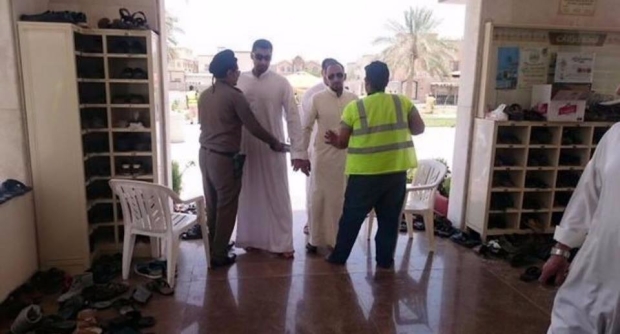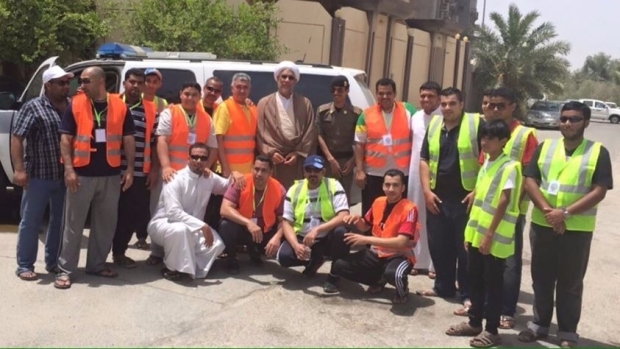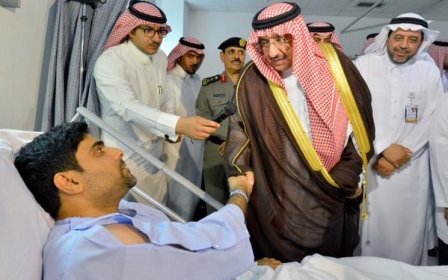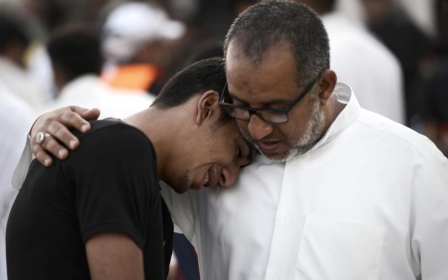Saudi police officer shot in Riyadh amid huge mosque security operation
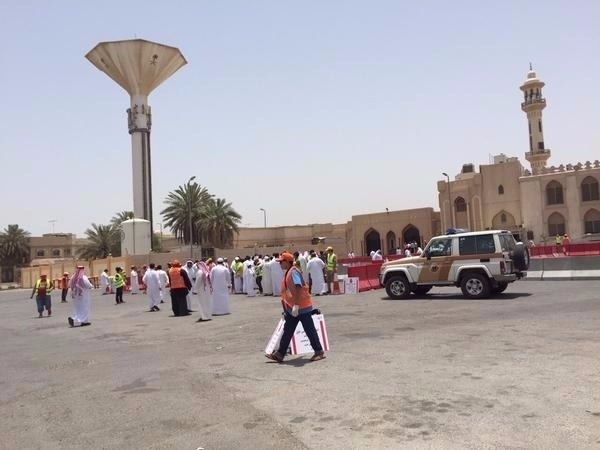
One Saudi police officer was injured in a shooting in Riyadh on Friday, amid a huge security operation across the country after two successive Fridays of suicide bombings on Shia mosques.
The police officer suffered mild injuries to his hand after unknown gunmen opened fire on his vehicle on the central Imam Saud bin Abdulaziz bin Mohammed road in the capital, according to local reports.
The authorities are yet to comment on the incident – it is not known if the gunmen have been arrested or if they escaped the scene.
The shooting took place early in the morning, as security was mobilised around the country to protect more than 94,000 mosques after two bombing attacks on Shia mosques on consecutive Fridays killed a total of nearly 30 people in the country’s Eastern Province.
The Ministry of Islamic Affairs worked with the country’s security agencies to ensure worshippers were protected as they attended Friday prayers.
“We have adopted new mechanisms for the protection of worshippers,” said an unnamed ministry official, according to Arab News. “We have intensive security measures around mosques following the attack on al-Qudaih mosque in Qatif.”
The Islamic State group claimed responsibility for the two mosque attacks in the Eastern Province on 22 and 29 May, which killed 24 people in the Qatif village of Qudaih and four people at the al-Anoud mosque in Dammam City respectively. The Syria-Iraq based militant group issued a statement with a claim of responsibility that called for the Arabian Peninsula to be cleansed of Shia Muslims.
In light of the two attacks members of Saudi Arabia’s Shia community – which makes up 10-15 percent of the 29 million population and is concentrated in the Eastern Province – have established voluntary unarmed “self-defence committees” to monitor people and vehicles entering their towns and villages.
The committees were established, locals previously told Middle East Eye, because they did not trust the police to provide adequate protection for the community. Many Shia Saudis believe the state has turned a blind eye – or even encouraged – rising levels of sectarianism, which has been blamed for leading to the two mosque attacks.
On Friday a video sent to Middle East Eye appeared to show police officers and the self-defence committees working together to protect the Imam Zain al-Abedeen mosque in the eastern city of Saihat.
The video – which could not be independently verified – appears to confirm what locals have told Middle East Eye, which is that police would accept the operation of civil self-defence committees as they have little influence in the Qatif region.
Photos taken by activists in Qatif also reportedly showed the police and committees working together.
The authorities are yet to comment on the committees - however, an activist based in Qatif said the police acceptance of the committees was an embarrassment for Crown Prince Mohammed bin Nayef.
“No one knows how long the police will accept the committees,” the activist said, asking to remain anonymous for his own protection. “But for now they are working together and it is a big loss for Mohammed bin Nayef, after he came to Qatif and told us no one could take responsibility for governing in any areas of Saudi Arabia.”
The Crown Prince, who is first in line to King Salman’s throne, visited Qatif in the aftermath of the Qudaih mosque attack and was challenged by a man over the government’s perceived lack of action in dealing with sectarianism.
Mohammed bin Nayef responded to the man’s questioning by stating the government will not be challenged.
“The government is doing its part and anyone else who tries to fulfil the role [that of government] will be held accountable,” he said.
The main sense of feeling on Friday, however, appeared to a sense of relief that prayers had passed off without a bombing attack.
New MEE newsletter: Jerusalem Dispatch
Sign up to get the latest insights and analysis on Israel-Palestine, alongside Turkey Unpacked and other MEE newsletters
Middle East Eye delivers independent and unrivalled coverage and analysis of the Middle East, North Africa and beyond. To learn more about republishing this content and the associated fees, please fill out this form. More about MEE can be found here.


